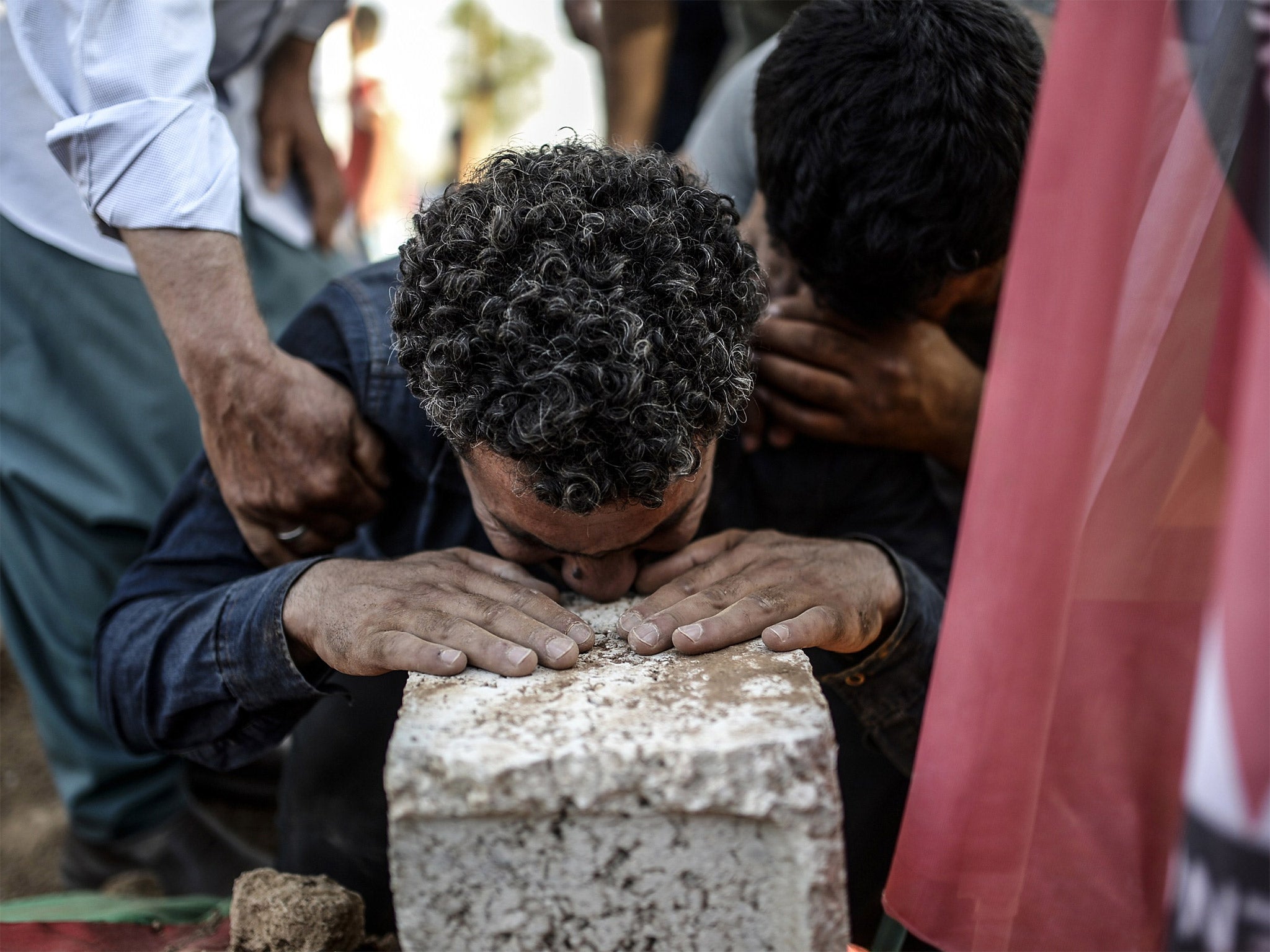Suruc suicide attack: Bombing shows Turkey is being sucked into the violence in Syria
The porous border has been crucial to the growth of Isis and Jabhat al-Nusra

The suicide bombing which killed 32 and wounded 104 young people in the Turkish town of Suruc shows the increasing degree to which the political agenda in Turkey is dictated by its involvement in the war in Syria. The victims of the blast were on their way to the Syrian Kurdish town of Kobani to build a children’s playground and day centre.
The Turkish Prime Minister, Ahmet Davutoglu, said that, when it came to identifying those responsible, “the first indications point to IS [Isis]”. This bland statement is more important than it looks because usually the knee-jerk reaction of Turkish officials is to blame such attacks on agents of the Syrian government, however unlikely this might be. Prior to the latest bombing, three Turkish journalists had asked the local provincial governor if Isis militants had crossed from Syria into Turkey and had been promptly jailed for their pains.
The exact relationship between the Turkish government, MIT (the main Turkish intelligence organisation), Isis and Jabhat al-Nusra, the Syrian affiliate of al-Qaeda, remains a question of intense interest inside, and outside, Turkey.
The Turkish government claims that it is fully committed to defeating Isis and the Suruc attack may even have been in retaliation for stepped up measures against the movement. Dismissing this, government critics maintain that the security clampdown against Isis is just for show to impress the US and other international powers.
There is no doubt that ability to move backwards and forwards across the 550-mile long Syrian-Turkish border has been crucial to the growth of the jihadi movements in Syria since 2011. The thousands of foreign volunteers who have flooded into Syria have almost all come from Turkey. Even those unable to speak Turkish or Arabic have had little difficulty in making their way across. In many respects, Turkey has provided a safe sanctuary for Isis and Jabhat al-Nusra, playing a similar role as Pakistan does in support of providing safe haven for the Taliban in Afghanistan. Turkish leaders furiously deny this, saying it is impossible to police such a long border.
The Turkish President, Recep Tayyip Erdogan, has denounced Isis as terrorists, but, in almost the same breath, has added that the Syrian government of President Bashar al-Assad and the Syrian Kurdish ruling party, the PYD, are just as bad.
A Syrian rebel offensive led by Jabhat al-Nusra was allegedly masterminded from an operational headquarters inside Turkey and was the outcome of a closer understanding between Turkey, Saudi Arabia and Qatar. Robert Ford, the former US ambassador in Damascus and vocal supporter of moderate Syrian rebels, said earlier in the year that the armed opposition is now wholly dominated by Isis and al-Nusra, which differ little from each other.
What will Turkey do after the Suruc bombing? It could move its forces across the border into Syria to create a “buffer zone”, a long-term Turkish objective. But this zone would mostly be situated in Syrian Kurdish territory and might even assist Isis which has been fighting the Kurds. Ankara is deeply worried about the 250-mile-long stretch of its southern border with Syria that is controlled by Kurds on the other side of the frontier fence. Mr Erdogan has already paid a political price for this when his party, the AKP, lost its parliamentary majority in the presidential election on 7 June, primarily because conservative Kurdish votes defected.
What is not in doubt is that Turkey’s policy in Syria has failed because Assad is still in power while the Kurds control a growing swathe of territory. Meanwhile, the violence is spreading inexorably into Turkey.
Join our commenting forum
Join thought-provoking conversations, follow other Independent readers and see their replies
0Comments